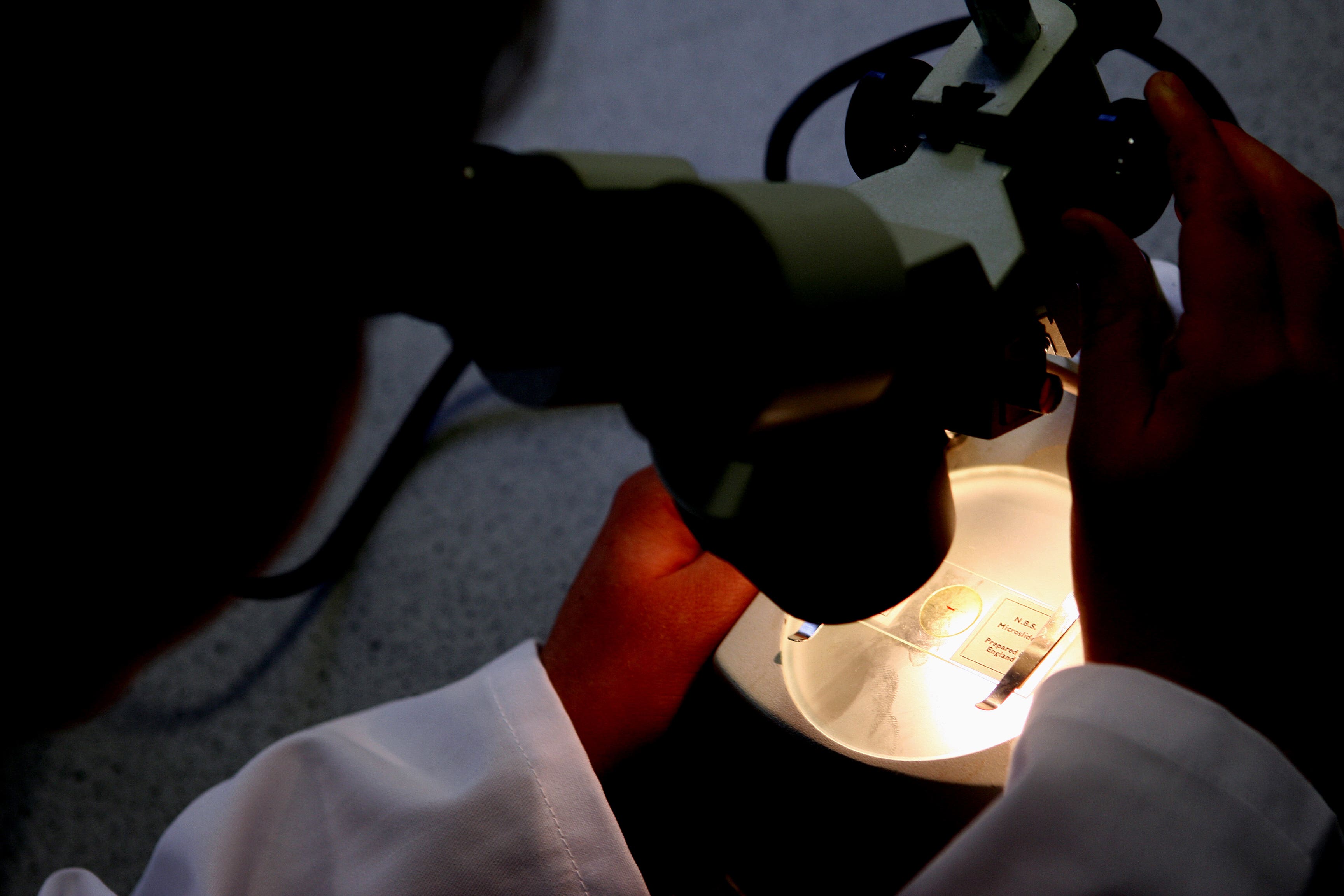Potential treatment for obesity and postnatal depression found by scientists
Researchers said the finding is ‘remarkable’.

Your support helps us to tell the story
From reproductive rights to climate change to Big Tech, The Independent is on the ground when the story is developing. Whether it's investigating the financials of Elon Musk's pro-Trump PAC or producing our latest documentary, 'The A Word', which shines a light on the American women fighting for reproductive rights, we know how important it is to parse out the facts from the messaging.
At such a critical moment in US history, we need reporters on the ground. Your donation allows us to keep sending journalists to speak to both sides of the story.
The Independent is trusted by Americans across the entire political spectrum. And unlike many other quality news outlets, we choose not to lock Americans out of our reporting and analysis with paywalls. We believe quality journalism should be available to everyone, paid for by those who can afford it.
Your support makes all the difference.The so-called “love hormone” could be a potential treatment for some people with obesity and postnatal depression, academics have said.
Researchers plan to develop new oxytocin medicines after they made a “breakthrough” in discovering one of the genetic causes behind obesity and postnatal depression.
Experts from the UK and the US began their work by looking at the genes of two boys from different families who were living with severe obesity and also suffered from anxiety, autism, and behavioural problems triggered by sounds or smells.
We demonstrate that TRPC5 plays a pivotal role in mediating innate human behaviours fundamental to survival including food-seeking and maternal care
They found that the boys were both missing a single gene – known as TRPC5, which sits on the X chromosome.
Further work found that their mothers were also missing the gene on one of their X chromosomes. Both mothers were living with obesity and both had suffered postnatal depression.
Researchers, led by scientists at the University of Cambridge and Baylor College of Medicine in Texas, USA, decided to examine the missing gene further in studies of mice, genetically modified to have a defective version of the gene.
They found that male mice with this defective gene displayed the same problems as the boys, including weight gain, anxiety, a dislike of social interactions and aggressive behaviour.
Female mice showed similar behaviours. And when they became mothers they also displayed depressive-like behaviour and “impaired care of offspring,” the authors said.
“What we saw in those mice was quite remarkable,” said Dr Yong Xu from Baylor College of Medicine.
“They displayed very similar behaviours to those seen in people missing the TRPC5 gene, which in mothers included signs of depression and a difficulty caring for their babies. This shows us that this gene is causing these behaviours.”
The researchers said that the TRPC5 gene is one of a family of genes involved in detecting senses including heat, taste and touch.
TRPC5 acts in the hypothalamus region of the brain, where it is known to control appetite, the University of Cambridge said.
When scientists looked in more detail at this brain region, they discovered that TRPC5 acts on the nerve cells that produce the hormone oxytocin.
Oxytocin is a type of hormone in your body that promotes positive feelings.
Its primary function is to facilitate childbirth, but it has also been linked to bonding with loved ones and can be released through touch, music and exercise.
What we saw in those mice was quite remarkable
In the latest study, researchers found that deleting the TRPC5 gene from these oxytocin neurons led to otherwise healthy mice showing signs of anxiety, overeating impaired social skills and, in the case of mothers, postnatal depression-like symptoms.
They found that “overexpression” of the TRPC5 gene in oxytocin neurones “reversed” these symptoms.
This, the authors said, suggests that restoring oxytocin could help treat people with missing or defective TRPC5 genes – which could potentially lead to new treatments for obesity and postnatal depression.
“We demonstrate that TRPC5 plays a pivotal role in mediating innate human behaviours fundamental to survival including food-seeking and maternal care,” the authors wrote in the journal Cell.
They also examined data from around 450,000 people taking part in the UK Biobank study who had supplied genetic data.
They found that the missing gene is rare, carried by just 88 men in the study and 281 women.
In this instance, we have made a breakthrough in understanding postnatal depression, a serious health problem about which very little is known despite many decades of research
The analysis also showed that the women who were missing the gene were more likely to have a higher body-mass index score compared to people with the gene.
Professor Sadaf Farooqi from the Institute of Metabolic Science at the University of Cambridge said: “There’s a reason why people lacking TRPC5 develop all of these conditions.
“We’ve known for a long time that the hypothalamus plays a key role in regulating ‘instinctive behaviours’ – which enable humans and animals to survive – such as looking for food, social interaction, the flight or fight response, and caring for their infants.
“Our work shows that TRPC5 acts on oxytocin neurons in the hypothalamus to play a critical role in regulating our instincts.”
She added: “While some genetic conditions such as TRPC5 deficiency are very rare, they teach us important lessons about how the body works.
“In this instance, we have made a breakthrough in understanding postnatal depression, a serious health problem about which very little is known despite many decades of research. And importantly, it may point to oxytocin as a possible treatment for some mothers with this condition.
“This research reminds us that many behaviours which we assume are entirely under our control have a strong basis in biology, whether that’s our eating behaviour, anxiety or postnatal depression. We need to be more understanding and sympathetic towards people who suffer with these conditions.”